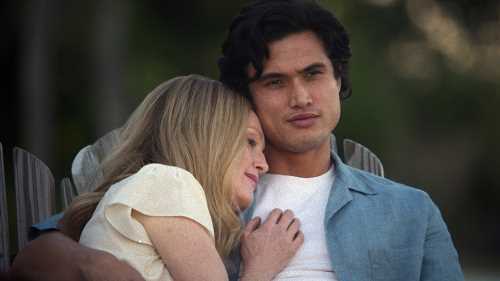New York Film Festival Director on Hollywood Strikes and the One Movie He Needed on This Year’s Lineup

As New York Film Festival’s artistic director, Dennis Lim has become adept at multitasking. “Sometimes, I have to introduce one film and then run across the street to moderate a Q&A for different film,” he says. “If I have an hour or two free, I will sneak into a cinema and watch something as a way to hide out.”
This year, he’ll be bouncing around Manhattan’s Upper West Side to host some of the buzziest movies from Cannes and Venice, like Todd Haynes’ soapy romantic drama “May December,” Bradley Cooper’s Leonard Bernstein biopic “Maestro” and Sofia Coppola’s “Elvis and “Me” adaptation “Priscilla.”
NYFF will also showcase the world premiere of Nathan Fielder and Benny Safdie’s genre-defying series “The Curse” and the Saoirse Ronan and Paul Mescal-led sci-fi story “Foe.”
Ahead of the 61st edition, which takes place from Sept. 29 through Oct. 15, Lim spoke to Variety about what to expect from this year’s celebration of cinema.
What was your goal with this year’s slate?
The festival is 61 years old, and the core identity has stayed the same: providing a snapshot of the year’s cinema. We’re a festival without a competition. We don’t have prizes. We have a handful of world premieres, but that’s not what we prioritize. We ask ourselves this question: If we’re trying to make a case for cinema as a vital art form, which films would we put forth to make that case?
How early do you start to curate the film lineup?
It’s a year-round process. We already have possibilities for next year. We start in earnest in January and February. We have members of the team at Sundance and Berlin. The process picks up after Cannes. We finalize it in July.
During the selection process, how many films are you watching per day?
At festivals, I can do four or five. That’s not uncommon. When we’re watching films in our theater, we can go even faster. We will block out seven or eight hours and power through five, six films. I don’t think it’s an optimal way to watch movies, but in the interest of getting through them, we have to do it sometimes.
How did you choose “May December” as the opening night film?
Members of the team and I were in Cannes, and we fell in love with the film right away. Todd Haynes’ work has been shown at the festival for a long time. He’s had a centerpiece film, but never the opening night. It felt overdue to acknowledge Todd in this slot. It’s one of the wittiest scripts, and it’s beautifully acted and directed. We think about how a film will play in a room, and this one checks all the boxes.
What is one film you needed on this year’s lineup?
A film called “Ryuichi Sakamoto | Opus.” It’s about the composer Sakamoto, who passed away a few months ago and wrote some of the most incredible film scores, like “Merry Christmas, Mr. Lawrence” and “The Last Emperor.” It’s basically him, a few months before he died, at the piano, just performing to the camera. It’s one of the most moving performance films I’ve seen.
How will the SAG strike affect the festival?
There will be fewer actors in person, but some films have interim agreements. We are international in scope, so maybe 20% of our films are American. Proportionally, not much of the lineup is affected. And maybe only half of those were produced by or released by AMPTP members. It’s a handful of films where you will unfortunately feel the absence of an actor who would otherwise be in support. It didn’t affect our curatorial process, because we were finalized by the time the strike was called.
Are you concerned about a lingering impact from the strikes? Will that make it harder to program for next year?
Yes, that has crossed my mind. It has already affected the pipeline, in terms of productions being shut down and delayed. But a lot of international films and American independent films have secured waivers and have been shooting. So, I think we will be fine for next year.
What is your metric of success for NYFF?
I look forward to the engagement, whether it’s journalists writing about the festival or a packed house. It’s the conversations that happen, not necessarily in Q&As, but people talking about the films.
What is something that moviegoers may not know about curating a film festival?
Some people think it’s like ordering off a menu… you have a list, and you just pick. There’s a lot of research that goes into it. I think people get that you have to watch a lot of films. But then you have to have discussions about what makes sense to program. It has to it has to be coherent in some way. It should appeal to different audiences. It isn’t just a list of our favorite films.
Read More About:
Source: Read Full Article